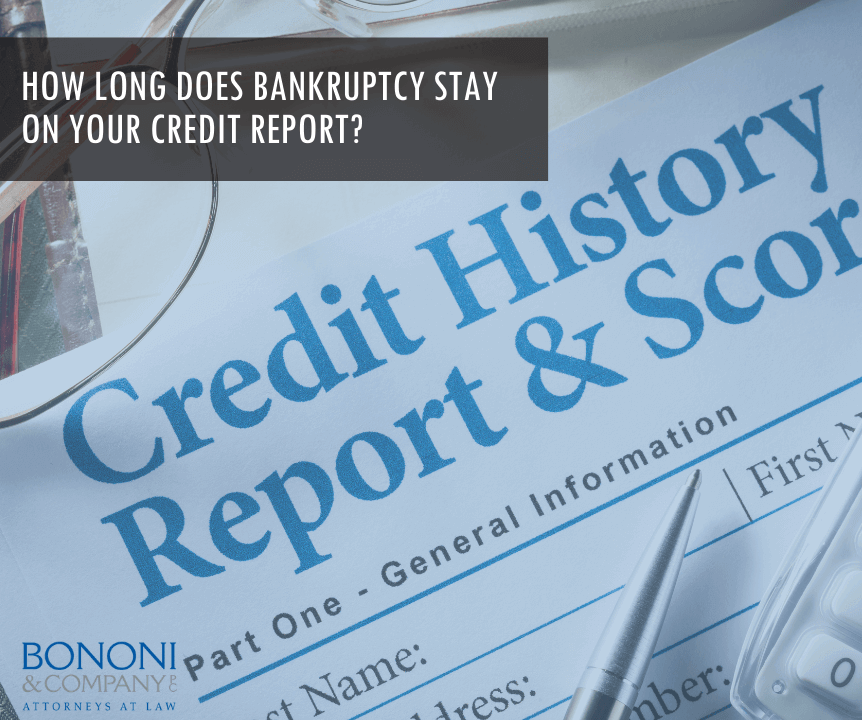
A chapter 7 bankruptcy will stay on your credit report for 10 years and a chapter 13 bankruptcy will stay on your credit report for 7 years.
Even though bankruptcy can stay on your report for up to 10 years, the effects on your credit can and will diminish over time.
Eventually the bankruptcy will drop off your report. Your credit scores will begin to recover even while the bankruptcy remains on your credit report.
There are many steps that a client can take to improve their credit after bankruptcy.
Step 1 – Make sure the right accounts are being reported on your report. After you have been discharged, dispute any inaccuracies in your report to make sure you are getting the most out of your fresh start.
Step 2 – Work on rebuilding your credit score. You can rebuild by opening up new lines of credit or by purchasing a new vehicle.
Step 3 – Monitor your reports to ensure they are being reported correctly.
The bottom line is deciding to file bankruptcy is not an easy choice. However, it is the best and right financial choice for many people.
A bankruptcy filing is not forever and it provides a fresh start from the already negative impacts on your credit from missed payments, late notices, and accounts in collection.
Reach out to our office to speak with experienced debt relief attorneys so that you are able to make an informed decision about your debt relief options.
If you have any questions about the topic discussed in this article, or any bankruptcy law matter, please give us a call at Bononi & Company 724-972-4180
